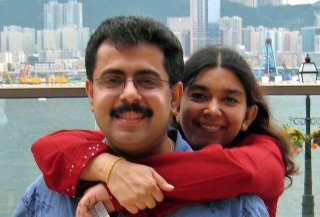
by Jaroldeen Asplund Edwards
Several times my daughter had telephoned to say, "Mother, you must come see the daffodils before they are over." I wanted to go, but it was a two-hour drive from Laguna to Lake Arrowhead.
"I will come next Tuesday, " I promised, a little reluctantly, on her third call. Next Tuesday dawned cold and rainy. Still, I had promised, and so I drove there. When I finally walked into Carolyn's house and hugged and greeted my grandchildren, I said, "Forget the daffodils, Carolyn! The road is invisible in the clouds and fog, and there is nothing in the world except you and these children that I want to see bad enough to drive another inch!"
My daughter smiled calmly and said," We drive in this all the time, Mother."
"Well, you won't get me back on the road until it clears, and then I'm heading for home!" I assured her.
"I was hoping you'd take me over to the garage to pick up my car.
"How far will we have to drive?"
"Just a few blocks," Carolyn said. "I'll drive. I'm used to this."
After several minutes, I had to ask, "Where are we going? This isn't the way to the garage!"
"We're going to my garage the long way," Carolyn smiled, "by way of the daffodils."
"Carolyn," I said sternly, "please turn around."
"It's all right, Mother, I promise. You will never forgive yourself if you miss this experience."
After about twenty minutes, we turned onto a small gravel road and I saw a small church. On the far side of the church, I saw a hand-lettered sign that read, "Daffodil Garden".
We got out of the car and each took a child's hand, and I followed Carolyn down the path. Then, we turned a corner of the path, and I looked up and gasped. Before me lay the most glorious sight. It looked as though someone had taken a great vat of gold and poured it down over the mountain peak and slopes. The flowers were planted in majestic, swirling patterns - great ribbons and swaths of deep orange, white, lemon yellow, salmon pink, saffron, and butter yellow. Each different-colored variety was planted as a group so that it swirled and flowed like its own river with its own unique hue. There were five acres of flowers.
"But who has done this?" I asked Carolyn.
"It's just one woman," Carolyn answered. "She lives on the property. That's her home." Carolyn pointed to a well-kept A-frame house that looked small and modest in the midst of all that glory. We walked up to the house. On the patio, we saw a poster. "Answers to the Questions I Know You Are Asking" was the headline.
The first answer was a simple one. "50,000 bulbs," it read.
The second answer was, "one at a time, by one woman. Two hands, two feet, and very little brain."
The third answer was, "Began in 1958."
There it was. The Daffodil Principle. For me, that moment was a life-changing experience. I thought of this woman whom I had never met, who, more than thirty-five years before, had begun - one bulb at a time - to bring her vision of beauty and joy to an obscure mountain top.
Just planting one bulb at a time, year after year, this unknown woman had forever changed the world in which she lived. She had created something of ineffable magnificence, beauty, and inspiration.
The principle her daffodil garden taught is one of the greatest principles of celebration. That is, learning to move toward our goals and desires one step at a time - often just one baby-step at a time - and learning to love the doing, learning to use the accumulation of time. When we multiply tiny pieces of time with small increments of daily effort, we too will find we can accomplish magnificent things. We can change the world.
"It makes me sad in a way," I admitted to Carolyn. "What might I have accomplished if I had thought of a wonderful goal thirty-five years ago and had worked away at it 'one bulb at a time' through all those years. Just think what I might have been able to achieve!"
My daughter summed up the message of the day in her direct way. "Start tomorrow," she said.









